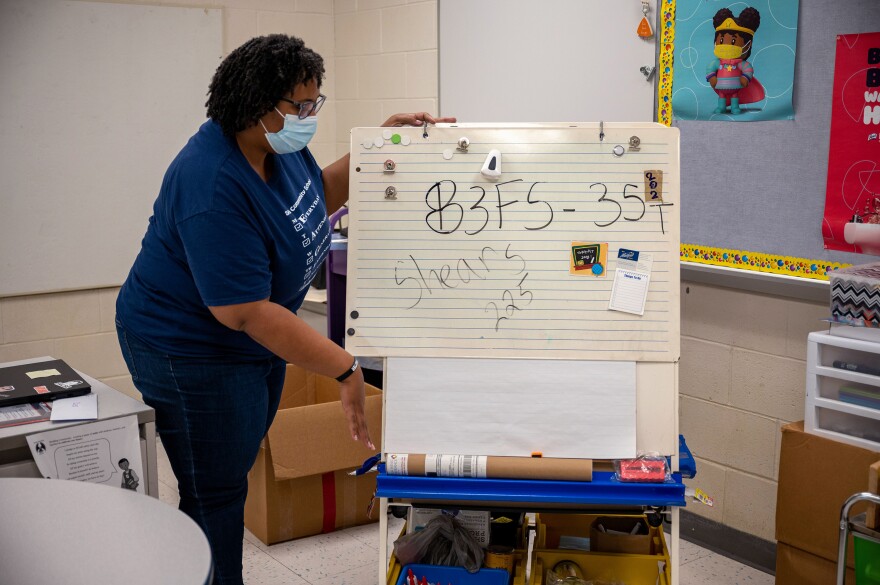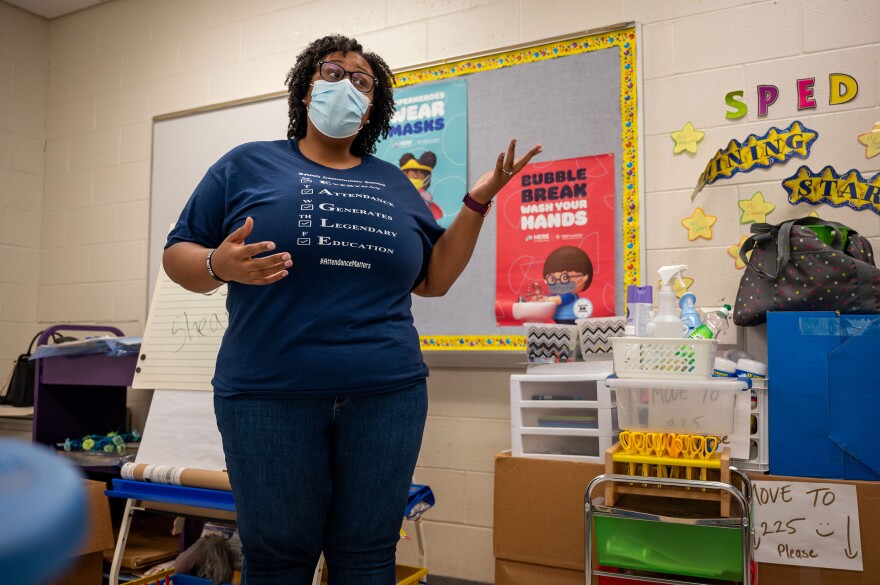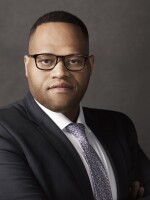At Hartford’s S.A.N.D. Elementary School, Victoria Shears is settling into a new office and gearing up for another school year during the pandemic.
Among her indispensable tools are a dry-erase board on wheels and a blue box with neatly labeled folders, each with curriculum materials for students in kindergarten through grade five.
Then there’s the box of pandemic supplies: Lysol wipes, hand sanitizer and tablecloths, which make cleaning up a breeze.
Shears, a resource teacher who specializes in special education, says despite all the upheaval caused by the coronavirus since March 2020, she’s hopeful things will be more normal this year, thanks in part to the vaccine.
“I feel like I can relax a little bit more ...” she said. “I just feel like I have that extra layer of protection. So I definitely think it was the best decision for myself.”
With a more contagious form of the coronavirus spreading in the U.S., and with vaccine approvals pending for younger kids, some parents are worried about their children returning to the classroom.
That goes for some teachers, too. It’s now mandatory for K-12 school employees in Connecticut to get vaccinated or request an exemption on religious or medical grounds.
That order, issued by Gov. Ned Lamont earlier this month, likely came as a relief to many local school administrators in Connecticut. Some pondered vaccine mandates of their own but were reluctant to take that step. Others have faced vocal criticism from parents over mask policies and other COVID-19 safety protocols for the coming academic year.
But it comes with added burdens, just as students return to class, including a requirement to record the vaccination status of all school employees.

In Hartford, at least 76% of the city’s roughly 3,500 school workers are vaccinated against COVID-19, according to the school system.
But that number is less clear elsewhere. In a survey by Connecticut Public, only 10 of the 45 school leaders who responded said they know with certainty how many staff members have received the coronavirus vaccine.
Many are beginning to collect that information now ahead of a Sept. 27 deadline set by the governor.
Lawyer Mark Sommaruga, who works with school boards on vaccine policy, says the new mandate will give some cover to local officials who were reluctant to take a hard line on vaccines.
But it comes with a lot of extra paperwork. One additional challenge is determining which employees should be granted religious or medical exemptions and how best to accommodate them in the workplace.
“Those are the kinds of words that, frankly, pay your lawyers’ mortgages,” Sommaruga said, referring to language in the governor’s order that instructs school administrators to evaluate such requests on a case by case basis.
Schools must collect written proof of vaccination from all of their non-exempt employees and report the vaccination status of their workers to the Department of Public Health. Those that don’t comply risk losing up to $10,000 in state education funds next year.
Sommaruga said there are some unanswered questions, too, such as who will pay for teachers with exemptions to undergo weekly testing. Many insurance companies won’t cover testing for people who aren’t showing symptoms of COVID-19. Issues like that could wind up in collective bargaining.
“We’re looking at it from all these different angles,” Hartford Superintendent Leslie Torres-Rodriguez said.
A team of administrators is reviewing how to implement the mandate. District records show 8.2% of staff are unvaccinated, and 18.8% have yet to indicate their status.
The superintendent says the next challenge is persuading more people in the community to get the shot.
“There’s a lot of apprehension in our communities, especially our communities of color, our communities that have been historically marginalized,” she said.

Back inside the classroom, Shears says she’s eager to see kids in person again. Some have been away since March 2020.
She hopes the vaccine will help them stay safe and remain inside the classroom this year.
“Kids who were in kindergarten when they left … are now in second grade,” she said. “I’m just excited to see them, and to see the growth that they’ve had over the time.”




